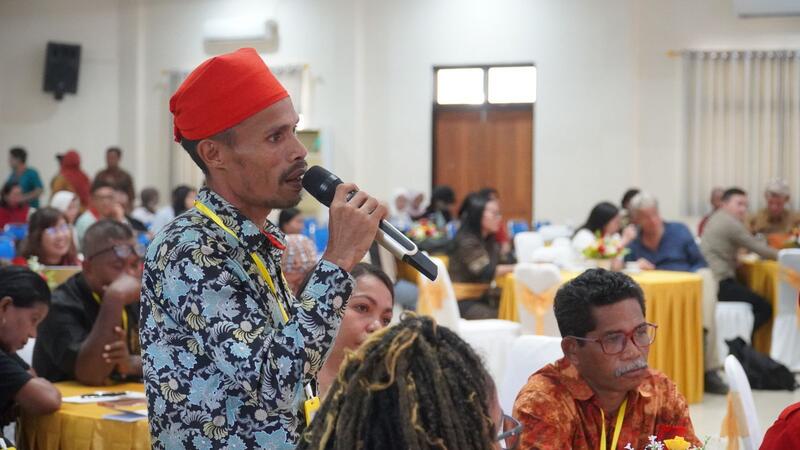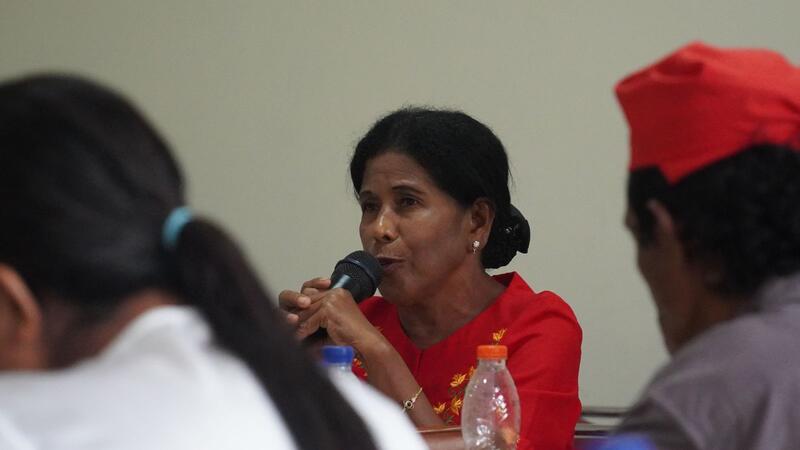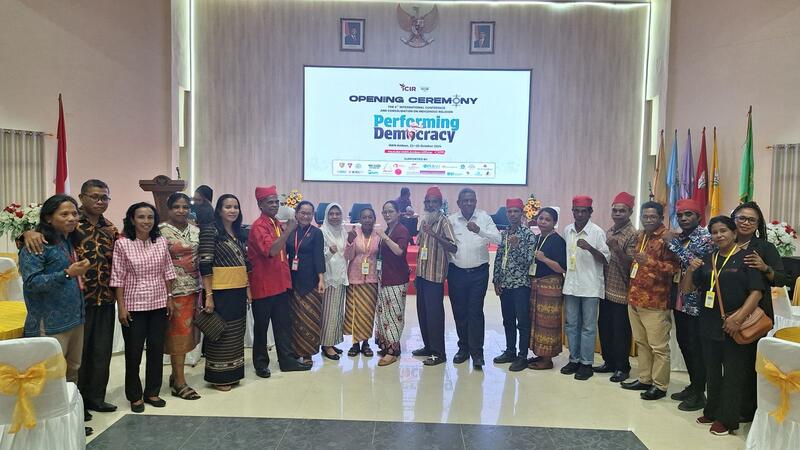

Today, we have a guest blog post from Forum advisor Whitney Bauman and colleagues on the Intersectoral Collaboration on Indigenous Religions.
In many ways Indonesia (or Nusantara) is a microcosm of our current planetary moment. As a nation of 1000s of islands and 100s of languages. Many of the islands have unique traditional cultures that still exist and persist to this day, even if mixed with Islam or Christianity (of some sort). In addition, it is an Island nation in the “ring of fire,” that experiences volcanoes, earthquakes, tsunamis, typhoons, and is already feeling the effects of climate change in a major way. As a country that is taking advantage of its rich natural resources on a global market, while still trying to maintain its own unique cultures and traditions, Indonesia offers a lot of examples of the problems we are all facing on a globalized world in the midst of climate change. How do democracies thrive under these current planetary conditions? For the future of democracy and the environment in Indonesia, we want to share news from a grassroots initiative to support followers of Indigenous Religions in Indonesia.
ICIR, The Intersectoral Collaboration on Indigenous Religions, brings together several universities, civil society organizations, and government departments (see icir.or.id). It is partially supported by the Oslo Coalition/ICLRS and the Asia Foundation. ICIR facilitates interactive and dialogic engagement around Indigenous Religions among academics, civil society organizations, activists, policymakers, and especially representatives of Indigenous Peoples.
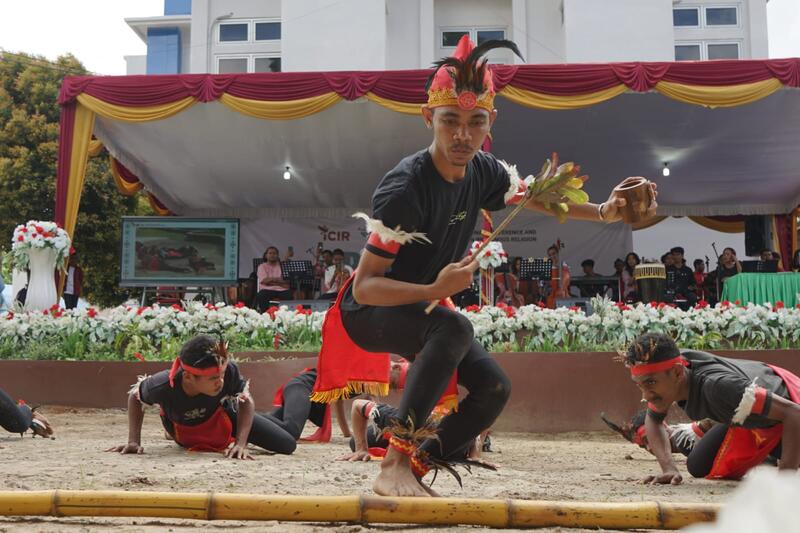
Its sixth annual conference (ICIR 6) was hosted by the State Christian Institute (IAKN) of Ambon in Maluku, Indonesia. This hybrid gathering took place over four days from October 22-25, 2024, with three main events: 1) an academic conference with presentations by academics, activists and representatives of Indigenous Peoples and a talkshow/cultural night facilitated the state Directorate of Indigenous Religions and People, the Ministry of Education, Culture, Research and Technology ; 2) a workshop for enhancing the citizenship of Indigenous Peoples through journalism activism facilitated by the Alliance of Journalists for Diversity (Serikat Jurnalis untuk Keragaman) and the Alliance of Independent Journalists (AJI), supported by International Media Support (IMS); and, 3) workshops for journalists writing on issues affecting Indigenous Peoples and for representatives of indigenous people, especially women, and CSOs formulating effective strategies for indigenous advocacy, especially in responding to living laws (referring to adat criminal laws) which is now regulated by the state based on the new Indonesian Criminal Code No. 1/2023, facilitated by the National Commission of Violence against Women (Komnas Perempuan).

A highlight of ICIR 6 was when representatives of Indigenous Peoples shared their struggle for survival in the face of ecological crises caused by government-led development, and discrimination by the government and government-supported religious organizations in civic/political, economic, social and cultural dimensions. For example, the issues of resource extraction, geothermal energy production, the palm oil industry, and even the building of the new Indonesian capital city of Nusantara in Kalimantan were discussed in the conversation. There was also discussion about the multiple genders found amongst traditional communities in Indonesia which have become more and more suppressed due to largely religious pressures from Muslim and Christian communities, and reflections on how to decolonize the environmental efforts of international and national non-profit organizations.
In response, representatives of Indonesian Christian organization offered apologies to Indigenous People for how longstanding religious missions converting Indigenous Peoples had degraded their traditions and (religious) practices. They also invited representatives of other religious organizations to do the same and commit to work together for the rights of Indigenous Peoples.
It is important to understand the context of religion, culture and Indigenous Peoples within Indonesia in order to get a better picture of the major issues addressed by ICIR.
Contemporary challenges to the status of religion in Indonesia revolve around 1) religious moderation, 2) religious freedom, and 3) religion and the environment. A policy of religious moderation was initiated by the Minister of Religious Affairs in 2019, and then became an official policy and priority program of the government (2020-2024).
Since then, the government, especially the Ministry of Religious Affairs, has actively promoted and mainstreamed it through the state branches, state-run religious schools and higher education institutions and in local communities. The main idea of religious moderation is to govern the six sanctioned religions in Indonesia (Islam, Protestantism, Catholicism, Hinduism, Buddhism and Confucianism), to promote a “middle way” and to moderate against the right (conservatism, radicalism, extremism and terrorism) and the left (liberal or Marxist).
As governed by the state, the policy on religious moderation which emphasizes religious harmony (of the six religions) continues to overlook the religious freedom of other religious minority groups. Jews, Baha’i and others still have to use one of the six religions as their citizenship religious identity, stated in their ID cards.
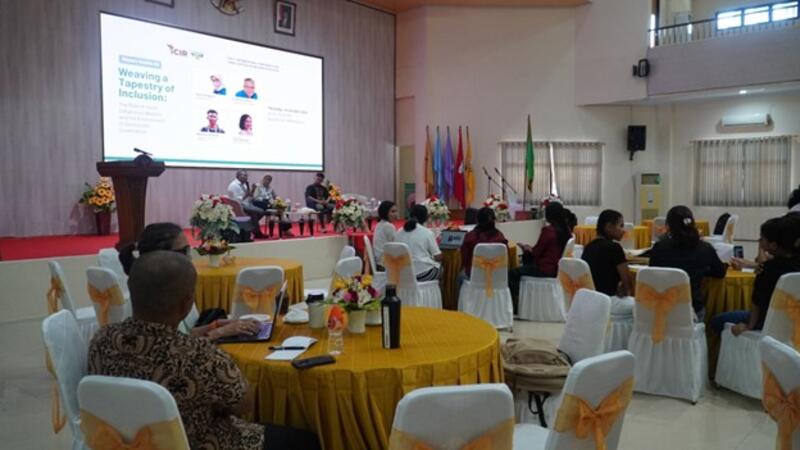
Regarding religious freedom, the Constitutional Court in 2017 approved a judicial review of the Law on Civic Administration, especially two articles that discriminated against followers of Indigenous Religions. The Court decided that the affiliation by religion (agama) must also include a category for Indigenous Religions (kepercayaan). Based on the decision of the Constitutional Court, followers of Indigenous Religions are free to use kepercayaan as their citizenship identity. Jews, Baha’i and others may also choose kepercayaan as opposed to the six religions as their citizenship identity.
Another new policy that equates agama and kepercayaan is the New Criminal Code No. 1/2023 on religion. There are six articles in the Law which will come into effect in 2026. In those articles, the mention of agama always includes kepercayaan. Some argue that those articles show some progress in terms of religious freedom, especially to followers of Indigenous Religions. However, the new criminal code maintains laws against religious blasphemy. (Religious) crimes thus include both those against the religious freedom of an individual(s) and those against (the teaching of) religions in a collective sense.
The third issue concerns religion and the environment. At the end of his final presidential term in 2024, President Jokowi issued a presidential regulation that offers mining concessions to religious organizations. The two largest Muslim organizations in Indonesian, Nahdlatul Ulama and Muhammadiyah, have both accepted the offer to own and manage mining projects. This decision presents a challenge to their previous statements and actions on responding to the climate crisis, inviting controversies both within these organizations and in wider society.
Another key term to understanding Indigenous Religions in Indonesia is adat. Adat is an Arabic word which means customs, but it has been used to attribute or articulate people groups as Indigenous, especially for social and political movements. Aliansi Masyarakat Adat Nusantara (the Alliance of the Archipelagic Indigenous Peoples), established in 1999, adopted the term “adat” as connected to Indigenous movements in Indonesia, linking their movement to the global movement for the rights of Indigenous People.
In addition, adat is a cultural term. It is attributed to land/forest/territory, houses/clothes, or even as a way of life. Indigenous Peoples and local communities often live with nature (their land/forest/territory) based on their adat system, making their existence and growth interrelated to the existence and growth of nature.
For some individuals or communities, adat is their religion. The state however has governed adat as “culture,” the same way as kepercayaan (“belief”) until 2017. Since adat does not count as a religion, adat communities have had to embrace one of the six religions. Due to the state’s religious governance, adat communities have been the targets of religious conversion or religionization (embracing one of the six official religions as a condition of being citizen). After embracing a religion of the six, people of adat have had to face challenges by religious narratives that their adat is heretical, in opposition to the religion they have been forced to embrace. For this reason, many followers of Indigenous Religions have complained that their adat has been in danger due to religionization.
Since the 2017 Decision of the Constitutional Court, some people from adat communities have begun to use kepercayaan as their religious affiliation on official citizenship documents. Some keep their religious affiliation on official documents while working to revitalize and re-establish their adat traditions.
This second option draws from a long history in the Indonesian context of people practicing adat alongside an official religion. These practices are particularly evident in public rituals and systems that encourage and support maintaining the balance between humans and the rest of the natural world.
As followers of Indigenous Religions continue their struggle for recognition and dignity, ICIR will continue to support research, dialogue and action for the flourishing of Indigenous Religions in Indonesia.
